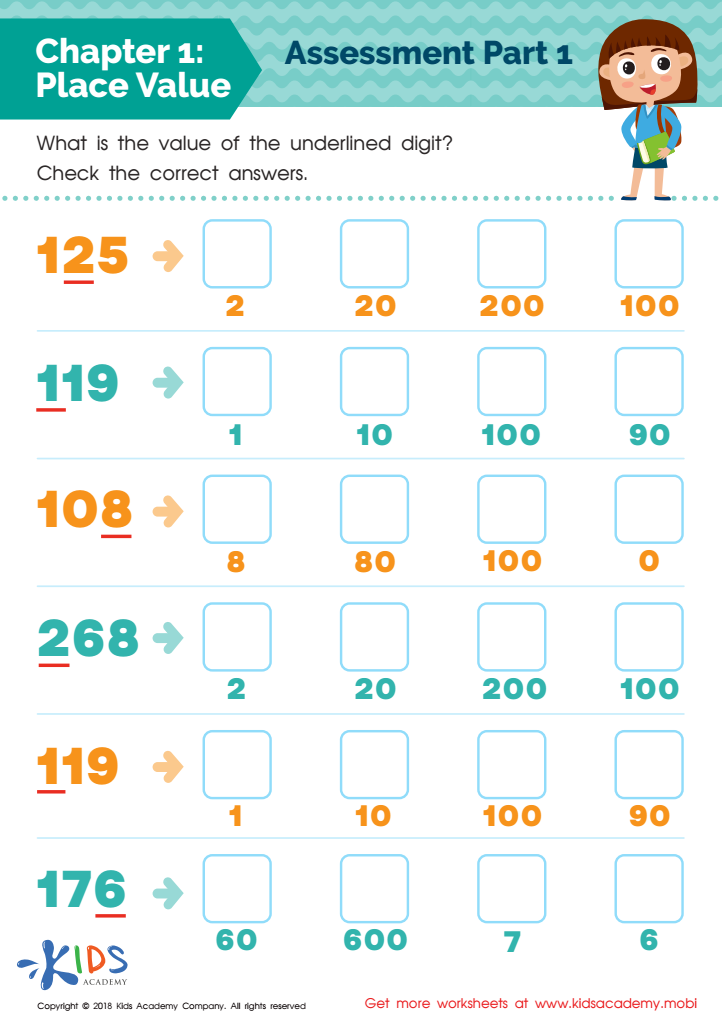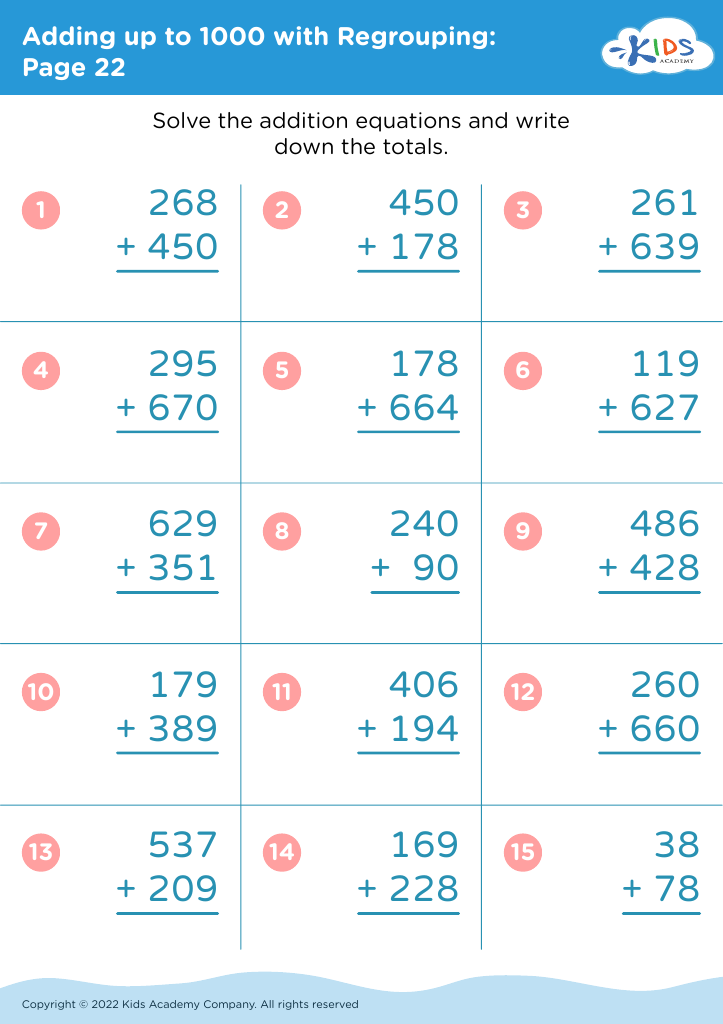Identify numbers Worksheets for Ages 6-8
3 filtered results
-
From - To
Help your child master number recognition with our expert-crafted "Identify Numbers Worksheets for Ages 6-8." Designed to align with early grade learning standards, these printable activities make learning fun and engaging. Each worksheet combines vibrant illustrations with age-appropriate challenges to enhance number identification skills. Targeted for kids aged 6 to 8, our resources offer a solid foundation for math success, encouraging confidence and excitement in young learners. Perfect for classroom use or additional practice at home, these worksheets are a valuable tool in your child's educational journey. Start now and watch your child excel in mathematics!


Place Value: Chapter 1 Worksheet
Parents and teachers should prioritize identifying numbers for children aged 6-8 because this foundational skill is crucial for their overall mathematical development. Recognizing and understanding numbers sets the groundwork for arithmetic operations, problem-solving, and complex mathematical concepts that children will encounter later in their education.
At this age, children transition from concrete to more abstract thinking. By learning to identify and comprehend numbers, they build confidence in their abilities to navigate their world mathematically. For instance, recognizing numbers allows kids to understand time, manage money, follow recipes, and engage in games—activities rooted in real-life scenarios.
Moreover, early number identification supports cognitive development, enhancing memory and logical thinking. When children consistently interact with numbers, they develop critical skills like pattern recognition, sequencing, and spatial awareness. These abilities are not limited to math but extend to other academic areas, including reading and science.
Early engagement with numbers also contributes to a positive mathematical mindset. Children who feel competent with numbers are more likely to enjoy and excel in math, fostering a love for learning. Parents and teachers play a pivotal role in creating meaningful and enjoyable learning experiences, encouraging children to explore and appreciate the world through a mathematical lens.

 Assign to the classroom
Assign to the classroom














